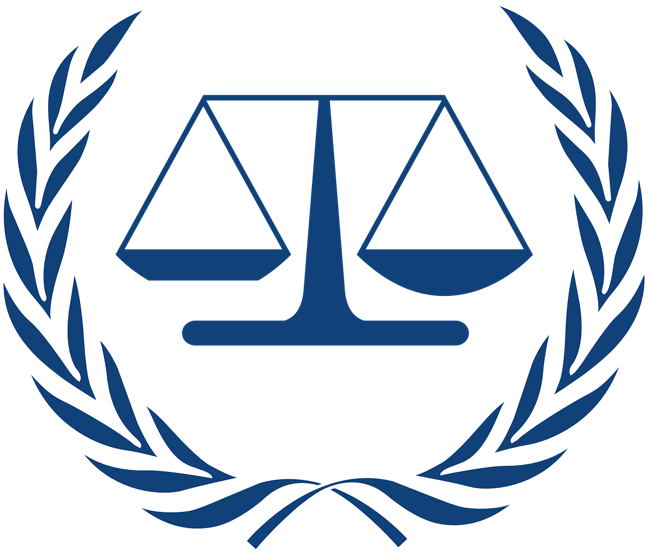Introduction

1.1. Objectives of the Ethical Code
The main objective of the Ethical Code is to do our best to limit the premises for unethical use of services and products of the Company, particularly the diagnostic platform of the Company – a diagnostic color association method (hereinafter referred to as “CA method”). To reach the objective, principles for minimization of the ethical risks specified in this internal regulation are set.
1.2. Definition
The Persons Concerned:
The persons concerned for purposes of the internal regulation are the employees of the Company, members of its bodies, persons authorized to act on behalf of the Company, the persons in managerial positions performing managerial or controlling activity, the persons performing controlling influence in the Company and any other persons pursuant to Section 8, Sub-section 1 of Act No. 418/2011 Coll., providing for criminal liability of corporate bodies and proceedings against them.
Authorized person:
An authorized person for purposes of this internal regulation is Mgr. Jiří Šimonek,
e-mail: info@dap-services.cz
2. Ethical Principles
2.1. Basic Responsibilities of the Persons Concerned
The Persons Concerned always act in the way to exclude, limit and neutralize factors leading to commitment of a crime, corruption or other illegal action.
Concerning prevention, the Persons Concerned are obliged in particular:
- To act always in accordance with legal regulations
- To get acquainted with the internal regulations of the Company and act in accordance with them
- To act always in the way so that no crime the Company might be responsible for would be committed
- To proceed in the way to prevent crimes or eliminate consequences thereof
- To proceed in the way to prevent a conflict of interests
- In case of any suspicion or finding a breach of the above stated rules, to inform a manager or an authorized person
- To contribute actively to fulfilment of the Ethical Code objectives
2.2. Zero Tolerance for Criminal Action
Within the Ethical Code the Company asserts null tolerance for criminal acts committed in its name, in its interest or within its activity. The Persons Concerned shall follow legal regulations and avoid any situations and activities forming conditions for a criminal action.
2.2.1. Notification of suspicion and primary and following steps
Any suspicion or risk related to even an alleged or potential breach of criminal law shall be reported to the Authorized Person or a manager.
In case of finding any criminal action related to the Company, the Persons Concerned shall, without undue delay, take all necessary steps to prevent other criminal activity, eliminate a danger caused to the interest protected by criminal law, avert any harmful consequences of the criminal action or remedy such harmful consequences. The Persons Concerned further take all necessary steps to prevent occurrence of property and non-property injury or minimize such injury incurred.
The Persons Concerned shall provide full cooperation to the bodies participating in criminal proceedings and act so that any evidence would be maintained.
Upon taking the primary steps, the Authorized Person and managers of the Company shall make subsequent internal investigation. Within the investigation all circumstances are found out and it is analysed whether it is necessary to change some procedures, organizational setup, this or another internal regulation or take any other steps to eliminate possibilities of repeating of similar criminal action as much as possible.
2.3. Zero Tolerance for Corruption Action
Any form of corruption action in connection with any activity of the Company is not accepted. The Persons Concerned always act in the way to eliminate preconditions for occurrence of corruption action to the maximum extent. The Persons Concerned shall not provide any donations, services, information or benefits to any public officers, public servants, other politically prominent persons pursuant to AML Act (hereinafter referred to as “politically prominent person”). The Persons Concerned shall not provide donations, services, information or benefits to any business partners and persons related thereto, except donations and benefits of reasonably low value. The Persons Concerned shall not receive donations, services, information or benefits from any business partners and persons related thereto, except donations and benefits of reasonably low value.
Managers of the Company keep their subordinates informed about potential corruption risks in the way of prevention of the risks and promote refusing any forms of corruption action. Managers of the Company further create such environment and conditions to prevent corruption action.
To minimize corruption risks, before making any real estate transaction, it must be always found out via Declaration and Questionnaire, whether a business partner is not associated with any politically prominent person.
The Persons Concerned shall inform the Authorized Person or a manager of the Company about any corruption action or risks.
2.4. Prevention of Conflict of Interests
Conflict of interests poses a risk that is in contradiction with principles and rules of the Company. The Persons Concerned are responsible for avoiding the situations when they could be influenced by their personal interests when performing their job duties (hereinafter referred to as “conflict of interests”). A personal interest of the Persons Concerned is also an interest of their relatives, close persons, friends, acquaintances and corporate bodies with whom the aforementioned are in material or other connection.
The Persons Concerned are obliged to notify a manager or the Authorized Person of any conflict of interests, even alleged. Notification must include detailed specification of (i) professional duty the conflict of interests refers to, (ii) personal interest that refers to the professional duty, (iii) all steps, actions (or waiver thereof) and decisions made related to the specified professional duty.
2.5. Rules for Using the Diagnostic Color Association Method – CA method
The Company refuses non-ethical using of CA method and insists on observance of the following principles without any reservation:
2.5.1. It is unacceptable so that CA method would be offered or used for any extremist purposes, political, religious or power ones.
2.5.2. It is unacceptable so that the data of CA methods would be intentionally and medially abused for unilateral and misleading campaigns, lobbing and confusing of individuals, social groups or the public.
2.5.3. It is unacceptable so that CA method would be modified, misinterpreted and dishonestly spread wilfully.
2.5.4. It is unacceptable so that particular outputs, measured values and obtained information would be provided to a third person without knowing and consent of the individual such information refers to.
2.5.5. It is unacceptable so that particular outputs, measured values and obtained information would be abused for endangering or restriction of human rights and human dignity, including hidden discrimination at work, segregation, bossing and similar practice towards individuals or social groups.
2.6. Awareness
The Company pays attention so that all Persons Concerned would be acquainted with the Ethical Code and the legal regulations related thereto. This internal regulation is available to the Persons Concerned in the electronic form. The Persons Concerned may contact the Authorized Person or their manager concerning any questions on the Ethical Code and their liabilities.
The Company ensures that each person who becomes the Person Concerned (particularly new employees, members of bodies of the Company, partners and controlling persons) shall be acquainted with the regulation within induction training or in another suitable way. The Company may arrange even other trainings as to the Ethical Code, particularly in case of any changes in this regulation or relevant legal regulations. Participation in such trainings is compulsory.
2.6.1. Elementary relating legal regulations
- Act No. 40/2009 Coll., Criminal Code, as amended (hereinafter referred to as “Criminal Code”).
- Act No. 418/2011 Coll., providing of criminal liability of legal persons and proceedings against them, as amended (hereinafter referred to as “Act on Criminal Liability of Legal Persons”)
- Act No. 141/1961 Coll., providing for court proceedings (Code of Criminal Procedure), as amended (hereinafter referred to as “Code of Criminal Procedure”).
- Act No. 253/2008 Coll., providing for selected measures against legalization of proceeds from crime and financing of terrorism, as amended (hereinafter referred to as “AML Act”).
2.7. Application of the Ethical Code in Contracts Concluded by the Company.
The Company ensures so that clauses on the Ethical Code according to the annexes of the Ethical Code would be included in all contracts of a relevant nature concluded by the Company, i.e. particularly in the contracts related to CA method and products and services based on CA method.
3. ETHICAL COMMISSION
3.1. Objectives of the Ethical Commission
The Ethical Commission is established by the Company and is authorized to supervise the application of the Ethical Code, prevent non-ethical using of the products and services of the Company, particularly CA method, and protect the good name of the Company and CA method. For that purpose, the Ethical Commission considers the conformity of using CA method with the Ethical Code within all project intentions of the Company.
3.2. Formation of the Ethical Commission
The Ethical Commission was established by adopting this Ethical Code by the Company, i.e. by approving the Ethical Code by the Board of Directors and General Meeting of the Company.
3.3. Competence of the Ethical Commission
3.3.1. The Company authorizes the Ethical Commission by giving binding attitude on conformity of project intentions related to CA method /hereinafter referred to as “Project Intention”) with the Ethical Code and other activities according to the Ethical Code.
3.3.2. Before realization of any Project Intention, the management of the Company shall submit an elaborated Projection Intention with the sources required to the Ethical Commission and shall wait for the attitude of the Ethical Commission.
3.3.3. The Ethical Commission shall give its attitude to the submitted Project Intention within three weeks after delivery of the Project Intention with the sources required.
3.3.4. The attitude of the Ethical Commission is a binding review of the conformity of the Project Intention with the Ethical Code of the Company.
3.3.5. Concerning the submitted Project Intention, the Ethical Commission may state in its attitude (i) the conformity with the Ethical Code, (ii) non-conformity with the Ethical Code, removable by acceptance of recommendation of the Ethical Commission included in the Attitude, (iii) incompatibility with the Ethical Code.
3.3.6. If the Ethical Commission states in its attitude (ii) non-conformity with the Ethical Code, removable by acceptance of recommendation of the Ethical Commission included in the Attitude, it is possible to realize the Project Intention only upon repeated submission to the Ethical Commission, if it states in its repeated attitude that recommendation of the Ethical Commission has been adopted and the altered Project Intention is in conformity with the Ethical Code.
3.3.7. The Ethical Commission is entitled to ask the Company management for any information required for evaluation of the conformity of the Project Intention or the project in progress with the Ethical Code.
3.4. Structure of the Ethical Commission
3.4.1. The Ethical Commission has 5 members.
3.4.2. The member of the Ethical Commission can only be a fully legally competent natural person.
3.4.3. Members of the Ethical Commission are elected by the General Meeting of the Company for the term of office of 3 years. The term of office of members of the Ethical Commission, elected within the first election of members after formation of the Ethical Commission is 1 year.
3.4.4. Within election of members of the Ethical Commission, the General Meeting elects the chairman of the Ethical Commission from the members elected. The chairman ensures organizational matters of the Ethical Commission.
3.4.5. Members of the Ethical Commission are entitled to remuneration for discharge of their duties. Remuneration is determined as follows: Remuneration of one member of the Ethical Commission is EUR 100.- for elaboration of the expert opinion of the draft project submitted.
3.4.6. The Ethical Commission meets as necessary, however, not later than within 15 days after sending a new project intention by the Company management.
3.4.7. Members participate in meetings of the Ethical Commission personally or using technical means enabling audio-visual transmission in real time.
3.4.8. The Ethical Commission has a quorum when at least 4 members participate in.
3.4.9. The Ethical Commission decides on acceptance of the attitude by simple majority of votes of the members participated in the meeting. In case of equality of votes, the vote of the Chairman of the Ethical Commission is decisive.
4. CHANGES IN THE ETHICAL CODE
When update of the Ethical Code is needed, this internal regulation shall be regulated so that its objectives would be achieved as much as possible. The Ethical Code may be altered only by a procedure that has been adopted.

